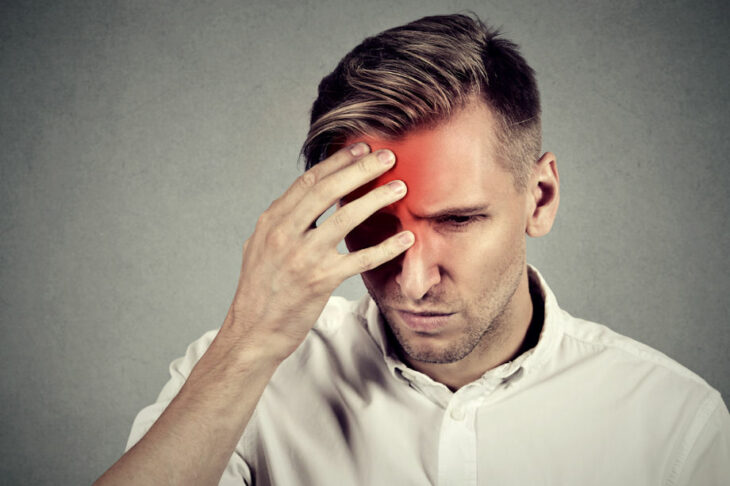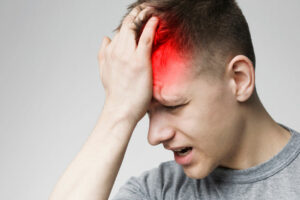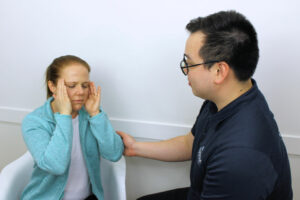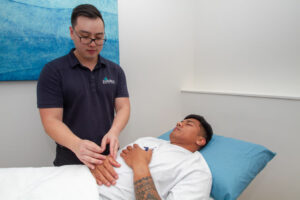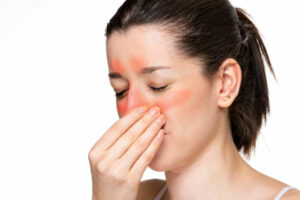Practising as an Acupuncturist for more than a decade now, I’ve seen firsthand how debilitating headaches can be for many of our patients. They come to us seeking relief from the constant pain and frustration that disrupts their daily lives. Over the years, we’ve gathered a wealth of knowledge and experience in helping our patients overcome their headaches, and one thing has become abundantly clear: there is a strong demand for natural, effective remedies, providing lasting relief.
That’s why I’ve put together this comprehensive article featuring our 10 Top Recommendations for Naturally Relieving Headaches.
In our clinic, we often treat patients who have tried countless treatments with little to no success. They come to us feeling hopeless and desperate for a solution. But time and time again, we’ve seen how the advice and recommendations we have written about here have transformed their lives, providing them with the relief they’ve been searching for and ultimately, improving their quality of life.
If you’re struggling with headaches, you’re not alone, and we’re here to help. From staying hydrated to exploring Acupuncture, there’s a wealth of natural remedies to get on top of headaches!
Don’t let headaches control you any longer – take the first step towards relief, keep reading and apply these steps to your day-to-day life!
Types and Symptoms of Headaches
There are a wide variety of headaches, and they can manifest in numerous ways. Tension headaches, migraines, and cluster headaches are the most prevalent forms of headaches.
Tension headaches are marked by a dull, agonising pain that might seem like a tight band wrapped around the head. Typically, these headaches are brought on by muscular strain or stress.
Migraines are characterised by throbbing, acute pain that is frequently accompanied by nausea, vomiting, and sensitivity to light and sound. Typically, these headaches are produced by alterations in the brainstem and its interactions with the trigeminal nerve which sends pain signals to the brain from the eyes, scalp, forehead, upper eyelid, jaw and mouth.
Cluster headaches are distinguished by an intense, piercing pain that is typically felt around one eye or one side of the head. These headaches seem to occur in cycles and are much less common than the first 2 types of headaches. Frustratingly for sufferers, little is known as to why cluster headaches occur.
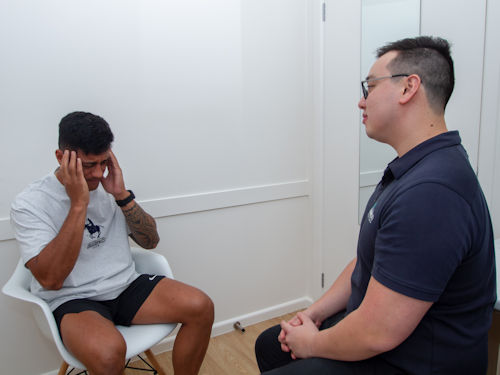
The Challenge in Relieving Headaches
Constant pain from headaches can be overwhelming for many sufferers. Many patients seek relief from over-the-counter pain medications; however, these drugs can have negative side effects and lose their effectiveness over time, as your body gets accustomed to regular consumption. In addition, pharmaceutical drugs used to treat headaches can cause severe adverse effects and may not be appropriate for everyone.
Identifying the underlying cause of their headaches is another obstacle for headache patients. There are several causes of headaches, including stress, tension, bad posture, and certain medical disorders. Identifying the underlying cause of headaches may require self-reflection, diarising the symptoms you have been experiencing over time and a consultation with a healthcare professional experienced in resolving headaches.
Chronic headaches can have a substantial influence on an individual’s quality of life. Migraines can impede everyday activities and make it difficult to work, interact with others, and enjoy life. Constant pain and suffering can affect a person’s emotional and mental health in addition to their physical health.
Our Ten Top Tips to Relieve Headaches
The good news is that headaches may be alleviated naturally, without the need for medications. Here are some of the most effective natural headache remedies that we talk to our patients about:
1. Staying Hydrated
Hydration is vital for maintaining the normal function of every system in the body, including the brain. When the body is dehydrated, the brain can temporarily contract or shrink due to fluid loss. This mechanism triggers the surrounding nerves to produce a dehydration headache. Drinking enough water ensures that your body has sufficient fluids to carry out its essential functions, reducing the likelihood of such headaches.
- Aim for at least 2 litres of water daily
- Increase water intake during physical activity or in hot climates
- Carry a reusable water bottle for convenience and ease of tracking your water intake
2. Get Enough Sleep
Chronic sleep deprivation or irregular sleep patterns can stimulate certain chemicals in the body, which can increase the sensitivity to pain, in turn triggering headaches. Regular and sufficient sleep allows your body to carry out essential restorative processes only possible while you are sleeping, which minimises the risk of headaches.
- Ensure 7-8 hours of sleep each night
- Establish and maintain a regular sleep schedule
- Create a relaxing bedtime routine
3. Practice Relaxation Techniques
Stress is a common trigger for headaches as it activates the body’s “fight or flight” response, causing changes in blood flow and muscle tension which can lead to a headache. Relaxation techniques such as yoga and meditation work by reducing the body’s stress response, thereby preventing these physiological changes.
- Engage in yoga, meditation, or deep breathing exercises
- Schedule time for relaxation daily
- Join a class or group for support and motivation
4. Excercise Regularly
Regular exercise aids in the production of endorphins, the body’s natural painkillers. It also helps to relax the muscles and improve blood circulation, both of which can mitigate tension and reduce the frequency and severity of headaches.
- Aim for at least 30 minutes of moderate-level exercise daily
- Choose activities you enjoy to stay motivated
- Mix up your routine for variety and full-body benefits
5. Maintain Good Posture
Tension headaches are often linked to strain in the muscles of both the neck and shoulders. This strain can be a result of poor posture, which places these muscles under more stress. Maintaining good posture ensures your body is aligned and balanced, reducing unnecessary strain on these muscles.
- Sit and stand with shoulders back and head upright
- Adjust computer and phone screens to eye level
- Take breaks to stretch and change positions throughout the day
6. Light Massage
Massage has been scientifically shown to lower levels of the stress hormone cortisol and increase levels of serotonin, which can help reduce the frequency of tension headaches. By promoting relaxation and easing muscle tension, massage can provide relief from headache pain.
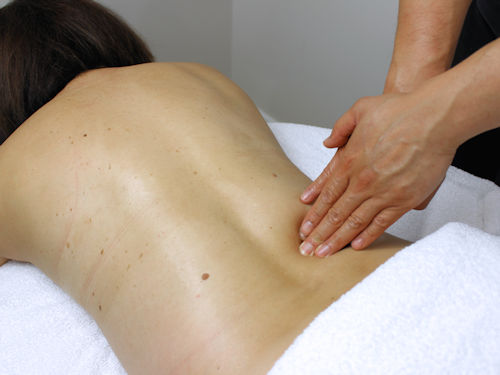
- The use of massage oil or lotion can be added to aid relaxation
- Focus on the base of the skull, neck, shoulders, and temples and if any area is more sensitive, focus on that area and repeat
- For the best results, reach out to us and get some professional guidance!
7. Healthy Diet
Certain foods and additives can trigger migraines or tension headaches in those that are susceptible to these kinds of headaches. Maintaining a balanced diet rich in fruits, vegetables, and whole grains can ensure you get the necessary nutrients for overall health and well-being, reducing the likelihood of headache triggers.
- A nutritious diet can prevent headaches
- Consume fruits, vegetables, and whole grains
- Avoid sugary, caffeinated, and processed foods
- Monitor food triggers and adjust your diet accordingly
8. Limit Caffeine
Excessive caffeine intake can lead to headaches due to the abrupt cessation of caffeine. This occurs because caffeine has a constricting effect on the blood vessels in the brain. When caffeine is withdrawn, these blood vessels can dilate, causing a headache.
- Restrict consumption of coffee, tea, and soda
- Gradually reduce intake to prevent withdrawal headaches
- Explore caffeine-free alternatives like herbal teas or decaffeinated beverages
9. Avoid Triggers
Different individuals may have different headache triggers, including certain foods, environmental factors, or stress. By identifying and avoiding these triggers, you can prevent the activation of the pain pathways in the brain that cause headaches.
- Common triggers include stress, certain foods, and medications
- Use a headache journal to track patterns and triggers
- Make sure to bring this journal along to your initial appointment with us so that we can use this to further understand exactly what kind of headache you have been experiencing and set out the best treatment for you.

10. Acupuncture
Acupuncture is thought to have analgesic effects by stimulating the release of various biochemicals, such as endorphins and serotonin, which can relieve headache pain. It may also improve blood flow and reduce muscle tension, further contributing to headache relief.
- Acupuncture is an effective, non-invasive treatment for headaches
- Low risk of side effects compared to conventional medications
- Can be combined with other therapies for optimal results
Need Help Getting Ontop of Your Headaches?
Headaches can be caused by a multitude of circumstances including stress, tension, bad posture, and certain medical conditions. By following these top ten tips, I hope that you are able to reduce or eliminate your headaches naturally, without the need for medical intervention.
The strategies mentioned not only help in reducing the frequency and severity of headaches but also contribute to overall well-being which is important for long-term benefits.
If you are sick and tired of dealing with your headaches and want them relieved for good, put these strategies in place right now and get in touch with my team on (02) 4709 6727 or by booking an appointment online, we look forward to supporting you on your journey to a headache-free life.

